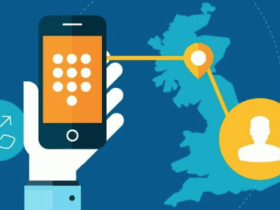There’s something oddly tempting about betting on the long shot. The kind of bet that makes most people say, “There is no way that is happening.” But then it does, and suddenly, everyone’s talking about it.
Take, for example, a Leicester City fan who bet on them winning the Premier League at 5,000-to-1 odds, just on the mere belief that their team can do this. That wild bet actually paid off. Stories like that are not daily occurrences, more reason why they never leave your mind.
They stick with you and quietly change how you think about risk, reward, and what could actually happen. Even if you’re not placing sports bets all the time, just watching an upset unfold can reveal a lot about how emotions shape our thinking. Here, we are going to go deeper into that type of thinking.
Why Upsets Hit So Hard
Some sports moments just don’t leave your brain. A last-minute goal, a no-name fighter knocking out the champ, or a tiny school beating a powerhouse. Experts call it the availability heuristic.
If a memory is strong and vivid, our brains decide it must be common, even if it’s really not, and yes, the chaos of an upset is hard to forget. We remember the noise, the shock, the faces, and that emotion makes a permanent mark. So, the next time you see a similar matchup, part of you might think it could happen again.
Hope Over Logic
Most of the time, people know the underdog probably won’t win. The numbers are right there, but hope has a way of drowning that out.
This is called optimism bias. It’s the idea that bad outcomes happen to others, and not to us. When betting, it feels like maybe your pick will be the one that hits, or maybe you just have a good feeling.
It’s not always about being logical, but about chasing that one win that makes the losses feel worth it. Especially after seeing someone else beat the odds, hope starts to look like a plan.
The Illusion of Control
Ever felt like you’ve figured the game out? You did your research, followed team updates, and studied player stats. There’s this feeling like you’re in charge now, and like you’ve spotted something no one else has. Psychologists call that the illusion of control.
You’re not the only one who’s felt it. Even experienced bettors fall into this. After a big win or seeing an unlikely outcome, people start to believe they can predict the next surprise. However, no amount of preparation can remove randomness from sports. When you think you’re in control, you’re more likely to place riskier bets, even if the odds don’t justify it.
Recency Bias: The Upset Hangover
Right after an upset, it’s easy to believe another one is just around the corner. That’s recency bias. It’s when recent events carry too much weight in your decision-making. So, if a heavy favorite just lost, you might start thinking that favorites aren’t reliable.
You may even start backing more underdogs without realizing that the upset was a one-off. It’s not a strategic choice. It’s your brain reacting emotionally to what just happened, even if that moment was a fluke.
Betting on the Story
Let’s face it, people love stories. There’s something about a comeback win or a player scoring on their old team that just hits different. It feels scripted, and we chase that feeling with our bets.
People don’t always chase the logical outcome. They chase the version that feels like it was supposed to happen. You go with your gut because the story feels too good to lose. The thing is, sports don’t always care about the story. The numbers still matter.
The Crowd Effect and Fear of Missing Out
Upsets spread fast, especially online. One upset, and boom, the internet’s all over it. Memes, replays, hot takes, and that one bet steals the spotlight. If you missed it, it can sting. That feeling? That’s just FOMO creeping in. It makes you want to chase the next big upset, just in case it happens again.
Herd mentality also kicks in. You see a lot of people backing the same bet and start thinking, “Maybe they know something I don’t.” Most of the time, they don’t. They’re just chasing the same feeling you are.
Risk vs. Reward: The Tug of War
At the core of every bet is a choice, how much are you willing to risk for what you might gain? Upsets tilt that balance. They make massive payouts feel within reach. Odds of 100-to-1 don’t seem so crazy anymore. They start to look possible, exciting, and worth a shot.
It’s not always about the money. It’s the thrill, the dream, that one bet that changes everything. When your brain focuses on that, it starts ignoring how unlikely it really is.
Smarter Betting Starts with Awareness
You can’t shut off your brain’s reactions. That’s normal. What you can do is catch yourself when emotions start taking over. Here’s how to stay grounded:
- Wait it out. A shocking win can cloud your judgment. Let the buzz wear off before making your next move.
- Check your gut. Is it logic talking, or are you chasing a feeling?
- A couple of wins can trick you into thinking you’ve got it all figured out. You probably don’t.
- Don’t bet just because everyone else is. Group hype isn’t a strategy.
- Keep the odds in mind. Wild upsets happen, yes, but not often enough to build your whole game plan around that.
Final Thoughts
Sports shocks are part of the fun. But in betting, those moments can cloud your judgment. Knowing how your brain works doesn’t mean you’ll never slip, but it gives you an edge. So before you go backing the next big upset, take a second. Are you betting on facts, or on how good the story feels?












Leave a reply